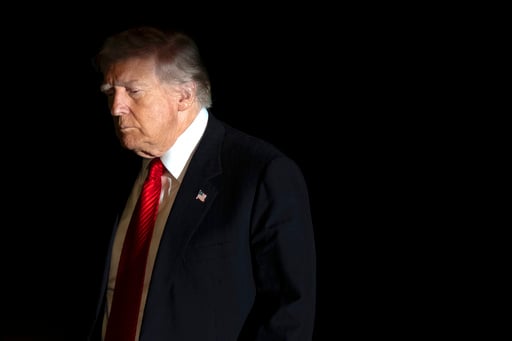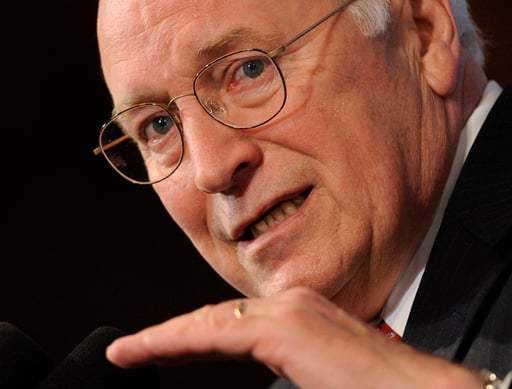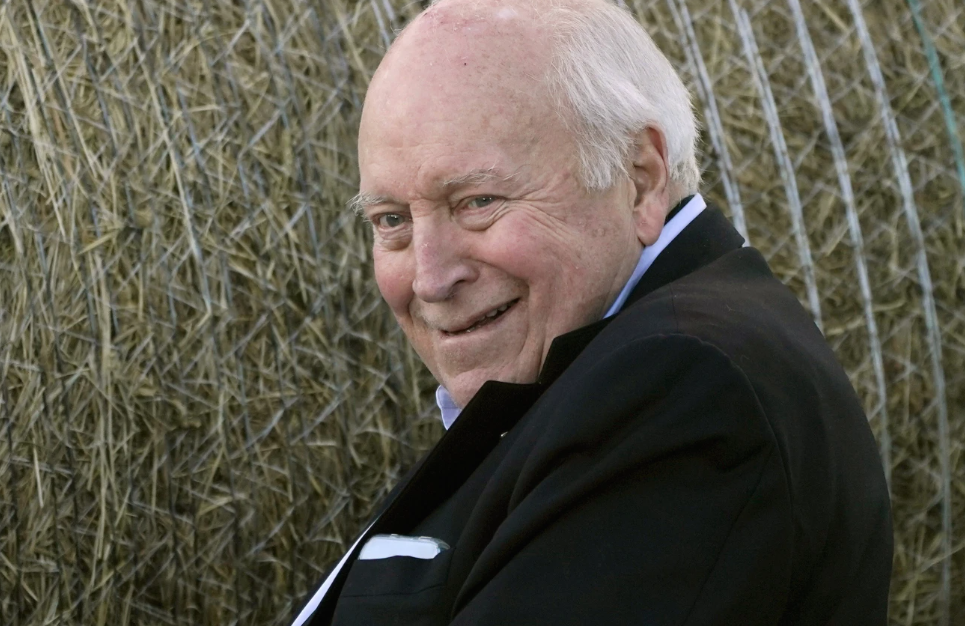Trump’s strength, Democrats’ message and the shutdown effect. What to watch on Election Day 2025
WASHINGTON (AP) — Tuesday marks the nation’s first major Election Day since President Donald Trump returned to the White House, and his leadership and policies dominated the debate in almost every race — even though the Republican was absent from the campaign trail.
The biggest contests are in Virginia and New Jersey, the only states electing governors this year. Trump lost both last fall, but voters in each have a history of electing Republicans for statewide office. The GOP candidates have closely aligned themselves with the president, betting that his big win last year can still provide a path to victory this time, even if the party occupying the White House typically suffers in off-year elections.
Strong Democratic showings, meanwhile, could provide the party a pathway back to national relevance — even if its top candidates have taken very different approaches, from adhering to a moderate line to wholeheartedly embracing government spending to improve voters’ lives.
In New York City, a self-described democratic socialist who already has been a target of Trump’s criticism could emerge as a national star if elected mayor. And California voters will decide whether to redraw the state’s House map, as Democrats look to counter a push by Trump to reshape the balance of congressional power.
Here’s what to watch:
A referendum on Trump
The president did not set foot in either Virginia or New Jersey to campaign with Republican gubernatorial candidates Winsome Earle-Sears or Jack Ciattarelli, but both contests will likely be viewed as a referendum on Trump’s job so far.
Over the last year, his tariffs rocked the global economy, his “big, beautiful” budget bill threatened rural hospitals and health insurance coverage for millions, he enacted massive cuts to the federal workforce and he sent the National Guard to multiple American cities.
The president endorsed Ciattarelli in New Jersey’s governor’s race, but held only a pair of tele-town halls on his behalf, including one Monday night. Trump also did an Election Night eve tele-town hall for Virginia Republican candidates, but he did not mention Earle-Sears, speaking mostly in favor of the GOP candidate for attorney general. Earlier in the campaign, Trump gave Earle-Sears only a half-hearted endorsement, saying he supported the GOP candidate for governor though he did not use her name. Earle-Sears was nonetheless a fierce defender of Trump and his policies, just as Ciattarelli was in New Jersey.
Despite Trump’s distance, a good night for Republicans would almost certainly be viewed as a political victory for Trump and his “Make America Great Again” policies. A bad night for the GOP would give Democrats a strong — though perhaps fleeting — start heading into midterms that are still a year away.
A new Democratic playbook?
Tuesday offers a test of two very different Democratic philosophies on display from candidates: toeing a moderate line or fully embracing far-left progressivism. But it also presents a scenario where both, or neither, could be successful — making drawing conclusions going forward more difficult.
The party’s candidates for governor, New Jersey Rep. Mikie Sherrill and former Rep. Abigail Spanberger of Virginia, have focused largely on the economy, public safety and health care, distancing themselves from some of the Democratic Party’s far-left policies.
A growing collection of Democratic leaders believe the moderate approach holds the key to the party’s revival after the GOP won the White House and both congressional chambers last year. Tuesday could be a key indicator of whether they’re right.
Both Sherrill and Spanberger have downplayed their support for progressive priorities, including LGBTQ rights and resistance against Trump’s attack on American institutions. Spanberger rarely even mentions Trump’s name on the campaign trail.
Both also have resumes that might appeal to the middle.
Sherrill spent a decade as an active-duty helicopter pilot for the Navy before entering Congress, while Spanberger is a former CIA case officer who spent years abroad working undercover. They have played up their public safety backgrounds as a direct response to the GOP’s attack that Democrats are soft on crime.
Above all, the Democrats have focused on rising costs such as groceries, energy and health care, which Trump has struggled to control.
A new star for Democrats (and Republicans) in New York City
That approach is far different from New York City’s mayoral race, where progressives are energized by Zohran Mamdani, a 34-year-old Muslim state legislator who identifies as a democratic socialist and backs radical changes to address economic inequality.
His bold agenda and inspirational approach have attracted thousands of volunteers in New York and brought the likes of Vermont Sen. Bernie Sanders and New York Rep. Alexandria Ocasio-Cortez to campaign on his behalf. It has also spooked some business leaders and voices in the Jewish community, who otherwise support Democrats but oppose some of Mamdani’s past statements about personal wealth accumulation and Israel.
Mamdani has been locked in a caustic race against former Gov. Andrew Cuomo, who is running as an independent after losing the Democratic primary to Mamdani. Republican Curtis Sliwa is looking for a huge upset.
And while many progressives are thrilled, some Republicans in Washington are also quietly rooting for a Mamdani victory. Republican campaign committees have already launched attack ads against more than a dozen vulnerable House Democrats in New York and New Jersey linking them to Mamdani and his far-left politics.
Trump endorsed Cuomo, posting online Monday evening: “Whether you personally like Andrew Cuomo or not, you really have no choice. You must vote for him, and hope he does a fantastic job. He is capable of it, Mamdani is not!”
That’s after Trump derided Mamdani nearly every day. GOP operatives are also giddy about the opportunity to use him to attack many more Democrats closer to next year’s midterm elections — just as they have done with progressive Democrats such as House “squad” members like Ocasio-Cortez and Minnesota Rep. Ilhan Omar.
The shutdown effect
Election Day comes in the midst of a federal government shutdown that has already spanned more than a month. Both parties in Congress blame each other, and there is no end in sight.
Will it matter?
Virginia is home to more than 134,000 federal workers, many of whom have been furloughed or are being forced to work without pay. New Jersey has nearly 21,000 federal employees, according to the nonprofit Partnership for Public Service, out of a total of more than 2 million such government employees nationwide.
Either number is more than enough to swing a close election.
At the same time, millions of people may be losing critical food assistance from the Supplemental Nutrition Assistance Program, or SNAP, offering voters another urgent reason to express their displeasure.
Polling shows that Republicans, who control Congress and the White House, are getting slightly more blame than Democrats — though there is plenty of frustration aimed at both sides.
Trump has taken the extraordinary step of calling on the Senate to scrap filibuster rules requiring a 60-vote minimum on major legislation to try and force the government to reopen — even though his party’s leadership considers that a nonstarter.
A test for the Trump realignment
While Trump lost Virginia and New Jersey last fall, there were significant shifts to the right in both states. In New Jersey, Trump’s 16-point loss in 2020 shrunk to less than 6 points in 2024.
Those shifts were fueled by Trump’s increasing popularity among traditional Democratic loyalists: labor union members, Black men, Hispanic voters and younger people. Democrats are particularly vulnerable in New Jersey, which has among the largest percentage of labor union households in the nation.
If those pro-Trump trends continue this week, Democrats could be in trouble.
But Trump is not on the ballot, of course. And the Trump coalition — especially lower-propensity voters — has not typically shown up in the same numbers in non-presidential years.
Democrats are cautiously optimistic given that Trump did not campaign aggressively in either state, a move driven both by the president’s weak standing and his allies’ concerns about the Republican candidates’ viability — especially in Virginia.
At the same time, the biggest star in Democratic politics, former President Barack Obama, rallied voters in New Jersey and Virginia over the weekend.
Pennsylvania and California and the future of elections
Pennsylvania voters will decide whether three state Supreme Court justices supported by Democrats will serve another term.
The outcome may shape the seven-member high court in the nation’s most populous swing state, and may have implications for key cases involving redistricting and balloting for midterm elections and the 2028 presidential race.
The incumbents aren’t listed by party affiliation. The ballot merely asks voters to cast a yes-or-no vote. But spending on the race is likely to exceed $15 million, indicating how important it is to Democrats and Republicans in Pennsylvania and beyond.
In California, Gov. Gavin Newsom, frequently mentioned as a 2028 presidential hopeful, is leading a charge to redraw congressional maps to give Democrats as many as five more House seats in upcoming elections.
The push is the centerpiece of a Democratic effort to counter new Republican maps in Texas and elsewhere that were drawn to boost the GOP’s chances in next year’s fight to control Congress. In order for the new maps to count in 2026, however, voters will first have to approve a yes-or-no ballot question known as Proposition 50.



